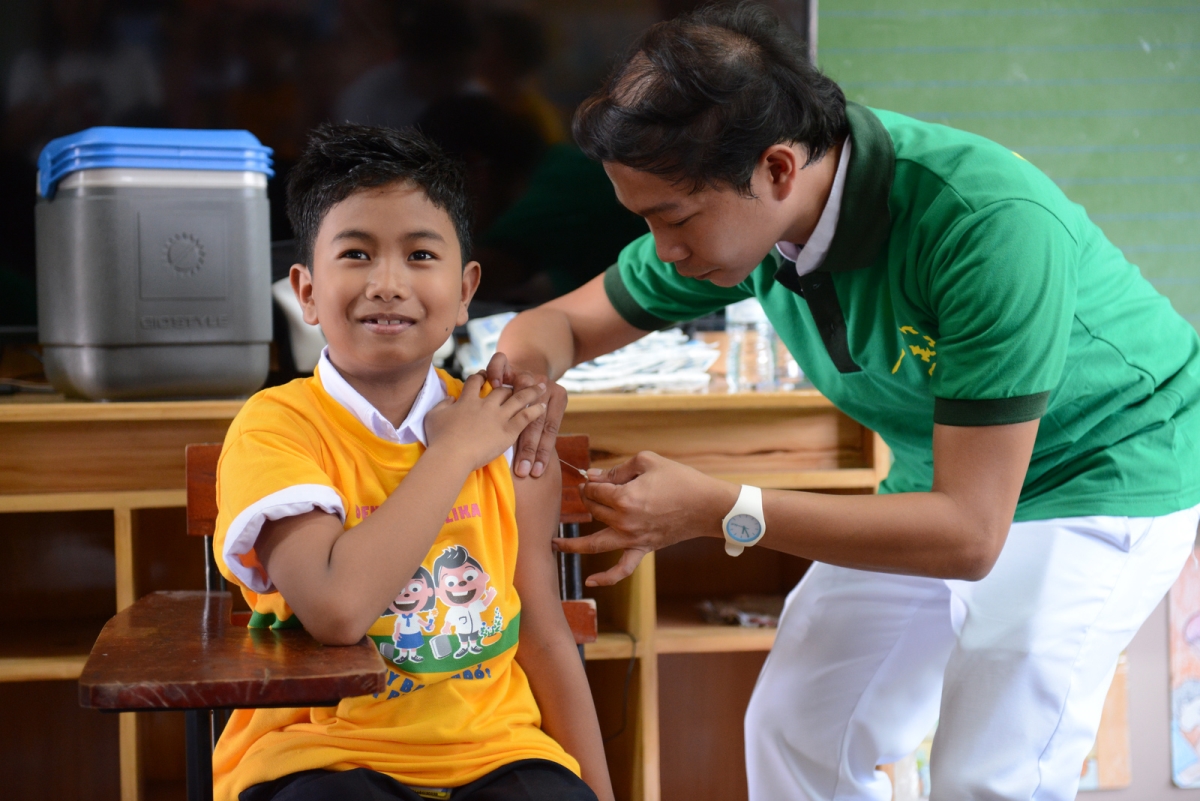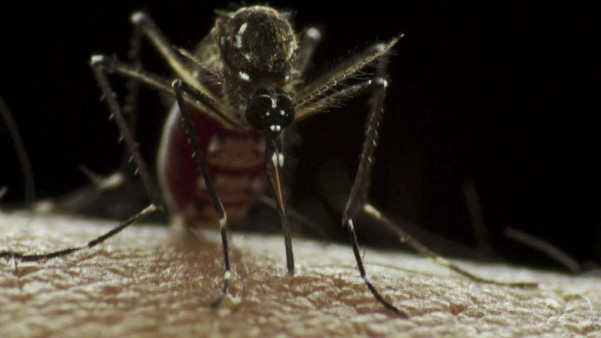
A child in the Philippines is administered a vaccination against dengue fever. Image via Sanofi Pasteur
A key WHO expert group recommends that the world’s first dengue vaccine be used in countries where the disease is endemic.
The WHO’s Strategic Advisory Group of Experts on Immunization (SAGE) said that countries with high dengue transmission should consider the introduction of dengue vaccination as part of an integrated disease prevention strategy.
According to the experts, the ‘Dengvaxia’ vaccine is recommended only in regions with seroprevalence of approximately 70% or greater in the age group targeted for vaccination. The vaccine is not recommended when seroprevalence is below 50%.
“Dengue vaccine introduction should be a part of a comprehensive dengue control strategy together with a communication strategy, well-executed and sustained vector control, the best evidence-based clinical care for all patients with dengue, and robust dengue surveillance,” the SAGE said in a statement.
“Decisions about introduction require careful assessment at the country level, including consideration of local priorities, national and sub-national dengue epidemiology, predicted impact and cost-effectiveness with country-specific hospitalization rates and costs, affordability and budget impact,” the group added.
The recommendations from the SAGE are based on the technical review of clinical data from 25 clinical studies conducted in 15 different endemic and non-endemic countries around the world, including more than 40,000 study participants.

Aedes aegypti mosquitoes can transmit the virus that causes dengue fever. Image via Sanofi Pasteur
The WHO dengue vaccine recommendation
The news was welcomed by the vaccine manufacturer and global health advocates.
“These WHO SAGE recommendations further validate the scientific and medical value of Dengvaxia and send a clear message to endemic countries about the strong public health benefit to be gained by introducing the dengue vaccine in integrated disease management efforts to combat their dengue burden,” said Dr. Elias Zerhouni, President of Global R&D at Sanofi.
Successful introduction of dengue immunization alongside other prevention efforts should help endemic countries to achieve the WHO objectives to reduce dengue morbidity by 25% and mortality by 50% by 2020.
The vaccine has already been licensed in Mexico, Brazil, El Salvador and the Philippines, with the latter rolling out the first public vaccination program earlier this month. The WHO statement is expected to accelerate the uptake of the vaccine in several countries where it is currently under discussion.
“This is a total game-changer,” said Kamran Rafiq of the International Society for Neglected Tropical Diseases. “It will reconfigure how countries approach dengue control. Coupled with advances in vector control, diagnosis, and disease surveillance, we see reason for optimism in the fight against dengue.”
Learn about the long-term effects dengue fever has on real people’s lives.
Watch, ‘The Lingering Effect of Dengue Fever’

